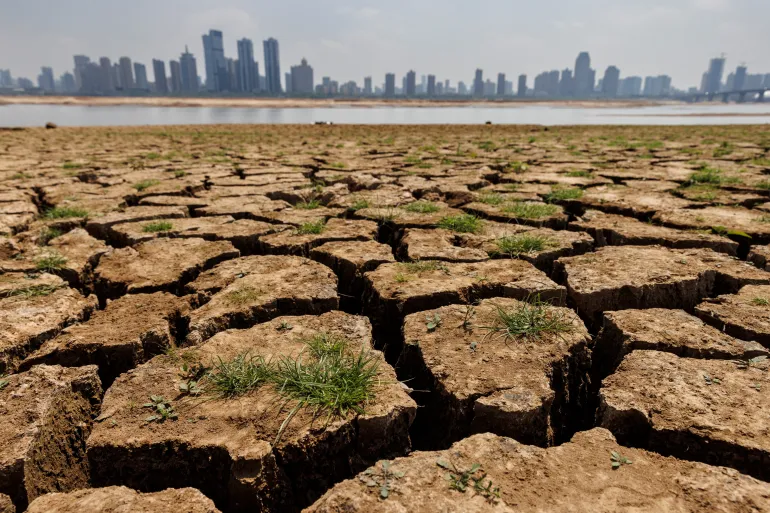China endured its hottest year on record in 2024, according to a report released by the national weather agency. The unprecedented rise in temperatures highlights the intensifying impact of global climate change on the world’s most populous nation.
Meteorological data collected across the country shows that the average temperature for 2024 exceeded all historical records since monitoring began. Heatwaves swept through multiple regions, breaking daily and monthly temperature records and causing severe environmental and societal repercussions. Cities like Beijing, Shanghai, and Guangzhou experienced prolonged periods of sweltering heat, forcing local governments to implement emergency measures to safeguard public health and infrastructure.
The extreme heat conditions also aggravated environmental challenges, including severe droughts in northern regions and diminished agricultural productivity. Farmers reported decreased yields of critical crops such as wheat and rice, while water reservoirs in key areas dropped to alarmingly low levels, threatening the availability of drinking water for millions.
Coastal areas faced their own challenges as rising sea temperatures fueled more frequent and intense typhoons. These weather events caused widespread damage, disrupting transportation networks, flooding urban centers, and displacing thousands of residents. The economic costs of these climate-related disasters were estimated to be in the billions, putting additional strain on the national budget.
The 2024 heatwave also had significant implications for public health. Hospitals across the country reported a surge in heatstroke cases, particularly among vulnerable populations such as the elderly, young children, and outdoor workers. Authorities urged citizens to remain indoors during peak heat hours and distributed cooling equipment in an effort to mitigate health risks.
The weather agency attributed these extreme conditions to the compounded effects of global warming, driven by increased greenhouse gas emissions and deforestation. The report emphasized the urgency for accelerated climate action both domestically and internationally, calling for greater investment in renewable energy, stricter environmental regulations, and enhanced climate resilience planning.
Experts also pointed to the broader global context, noting that 2024 was one of the hottest years globally, with similar patterns of extreme weather observed in other parts of the world. International organizations like the United Nations reiterated their warnings about the dire consequences of failing to meet carbon reduction targets outlined in agreements like the Paris Climate Accord.
In response to the crisis, the Chinese government pledged to double down on its environmental policies. Initiatives to reduce reliance on coal, expand solar and wind energy capacity, and promote electric vehicle adoption were announced. Furthermore, new research and development programs aimed at improving climate adaptation strategies are expected to receive significant funding.
As the impacts of climate change become more apparent, the experience of 2024 serves as a stark reminder of the need for unified global action to combat this existential threat. Scientists, policymakers, and citizens alike are calling for decisive steps to ensure a sustainable future for the planet.




















